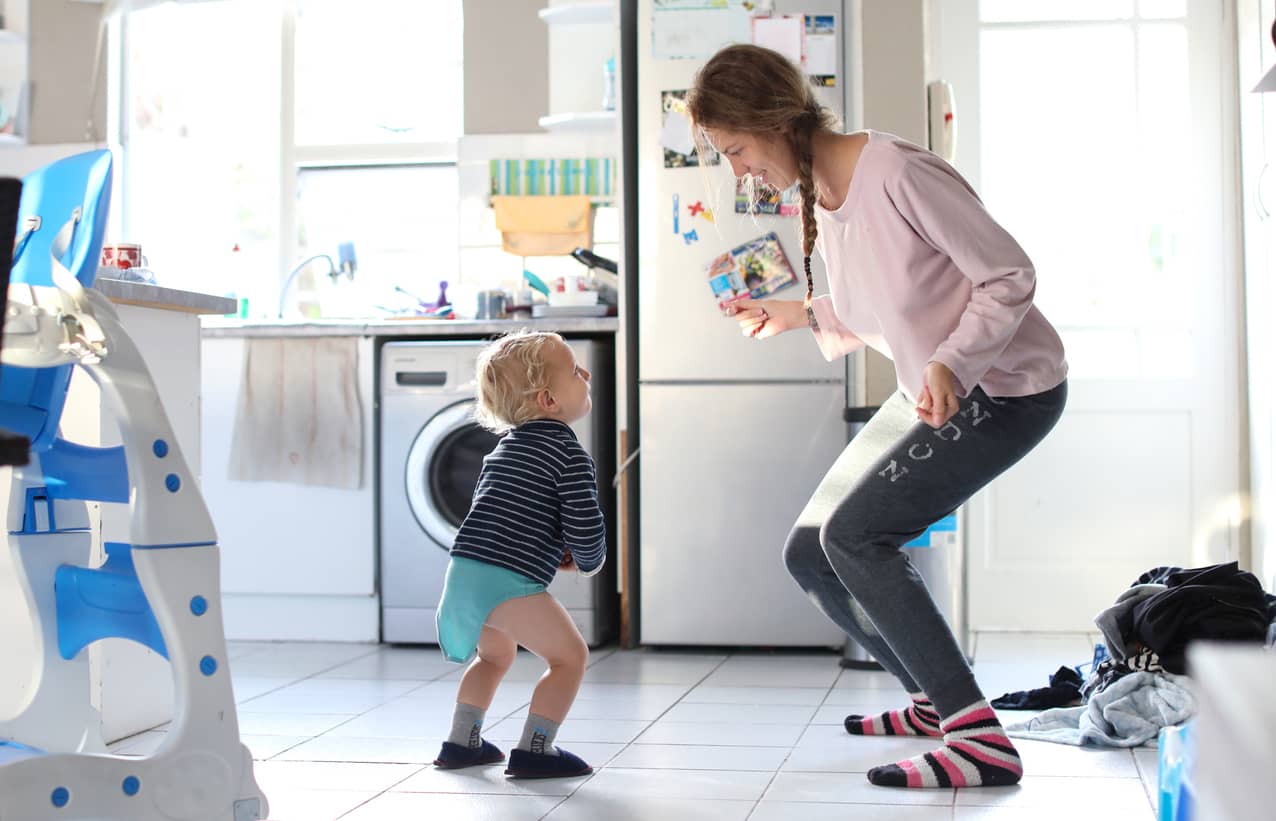As a parent coach, I get asked three questions frequently, "How do I discipline a toddler?" "How can I stop my toddler from hitting?" and "What's the best way to deal with temper tantrums?"
Of course, toddlers are adorable and endearing. Yet, their behavior can be exhausting; they're feisty and too young to act logically.
Estimated reading time: 4 minutes

Conscious Parents Respond Instead of React
Earnest parents desiring to be conscious parents are reticent to squelch their child's sweet and tender spirit. Yet, crying, whining, and temper tantrums can cause the most patient parent to snap. The mistake parents make is waiting too long in the earnest desire to be patient, but then the frustration and anger build. Let me tell you a story of one of my own parenting moments.
It's been many years since I was racing to keep up with toddlers or blowing up balloons for birthday parties. However, I was recently reminded by a client's parenting challenges of a time that tested my patience.
When my son was two, he and I had just picked up a cake from the bakery for a friend's surprise birthday party. To keep the cake secure, I nestled the white cardboard box on the floor between the two front seats of our van. Arriving in our driveway, I unhooked the quick-release buckle on my son's car seat and headed to the side door of the van to let him out and gather our belongings.
Coming quickly around to take my son's hand, I was shocked to find him sitting on the cake box with a big grin on his face. With all the sweetness of the freshly squashed cake, he squeaked, "It's a perfect seat for me, Mom!" He had mistaken the cake box for a booster chair, which he frequently sat on at our kitchen table.
This is the thing about toddlers; their developmental stage urges them to move fast and fulfill the pull to explore but simply don't have the experience or logic online yet to make good decisions. It's one of the reasons power struggles are so common with two-year-olds. Some like to call them the "terrible twos," I prefer the "terrific tows!"
Emotional Intelligence Tip #1: Learn to Self-Regulate,
Especially at Highly Emotional Times
 Now, this mishap could have spoiled our day entirely, but I determined not to let the innocence of a toddler unglue me. I shifted gears to create a happy memory instead. We gathered for the birthday party as planned, but our birthday feast turned into a totally different experience. We gobbled up the smashed cake with our fingers—a rare event that invoked many smiles and giggles.
Now, this mishap could have spoiled our day entirely, but I determined not to let the innocence of a toddler unglue me. I shifted gears to create a happy memory instead. We gathered for the birthday party as planned, but our birthday feast turned into a totally different experience. We gobbled up the smashed cake with our fingers—a rare event that invoked many smiles and giggles.
It's so easy to let an unexpected incident—whether it's a squashed cake, a broken vase, or a dented fender—be more important than our child's feelings. Not because we want to react but because we are emotionally triggered at the time. In retrospect, we see clearly how we "could have," or "should have" acted, but then it's too late. However, regardless of how stressed we may be, it's our job to respond lovingly to our dependent toddlers who are acutely affected by their parents' responses.
Therefore, one of the most valuable skills we can learn and practice as parents is to regulate our emotions and self-calm.
Practice self-calming before you yell; take time to unwind before handling problems with your child. Not only will you respond better, but you'll also begin to develop emotional regulation.
Emotional Intelligence Tip #2: Get in Touch with Your Values
Like fanning a bonfire at our favorite campsite, we can strengthen our commitment to our guiding ideals. If creating a fun atmosphere in your home is important to you, redirect your toddler by putting on some music and dancing spontaneously. Sometimes simply doing the unexpected in a playful way can shift tense energy.
Focusing on what's truly important to us and building a stronger connection to our values do two things. First, it dissipates our need to lash out. And second, it replaces negative emotions and allows us to respond lovingly instead of reacting.
One of my values as a parent has been to strive to seek to understand before responding. Although I have failed many times, I got better over the years. In the smashed cake situation above, by keeping my value in full view, my intention to understand helped me refrain from yelling; then, my son's joy melted the rest of my distress.
When we take care of ourselves as parents and make self-care a priority, we are ready for the unexpected and respond much more playfully.

Emotional Intelligence Tip #3: Try a Mindfulness Practice
A regular practice of mindfulness fortifies our ability to calm ourselves when it really matters. When we rivet our attention on our values and amplify their presence with us, negative responses dwindle. Conscious choice makes it possible to safeguard a child's blossoming self-esteem and impart what truly matters in life—each other!
And a huge bonus: When we build self-control through mindfulness, we are able to model emotional regulation and self-calming for our children.
Turn mishaps into happy memories: Amplify your truest values and minimize a negative situation just by shifting your emotions and attention slightly, yet deliberately.
Related reading; "Positive Parenting: 3 Parenting Strategies for Greater Patience."
 for great parenting articles and tips for conscious parenting. Our newsletter is dedicated to giving you the support and skills you and your children deserve!
for great parenting articles and tips for conscious parenting. Our newsletter is dedicated to giving you the support and skills you and your children deserve!








